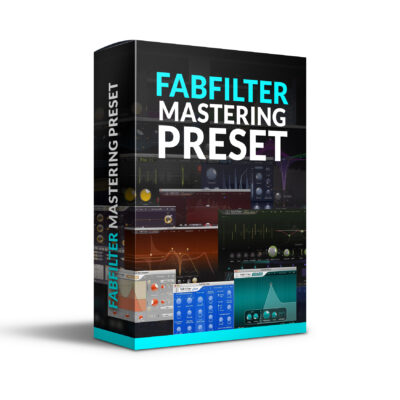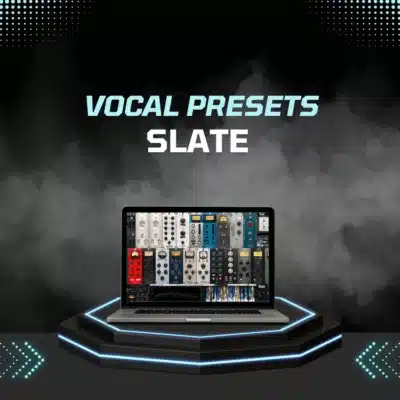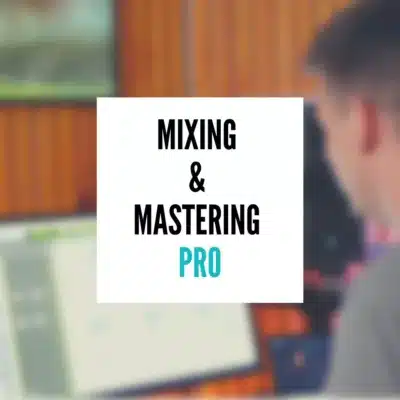Mixing and mastering are crucial steps in producing a professional-sounding song or album. However, they are often misunderstood or overlooked by amateur musicians and producers.
Mixing is the process of blending and balancing all the individual tracks of a song – the vocals, instruments, etc. A good mix makes sure all the elements can be heard clearly and work together seamlessly. The mixer uses effects like reverb and compression to shape the sound and create a cohesive, polished recording.
Mastering comes after mixing. It’s the final polishing stage that prepares the song for release. The mastering engineer makes subtle adjustments to the overall sound to optimize playback across different speakers and devices. This gives the recording loudness and clarity. Mastering also makes the song sound consistent from start to finish.
Both mixing and mastering require technical expertise, critical listening skills, and high-quality gear to get right. An amateur mix often sounds muddy and imbalanced, while unmastered songs won’t achieve the volume and polish expected of professional releases. That’s why many musicians invest in professional mixing and mastering services. The results can elevate the listening experience and production quality. However, some producers wonder – is it possible to get quality mixing and mastering for free?
The Costs of Professional Mixing and Mastering
Up and coming mixing and mastering engineers typically charge anywhere from $100 to $200+ per song. The rates can vary based on the engineer’s experience level, the complexity of the mix, as well as regional pricing differences. Some top engineers in major markets like L.A., New York, and London can charge $300-$4000 or even higher per song.
In general, mixing costs tend to start around $50-150 per song for less experienced engineers, around $100-200 per song for mid-level engineers, and $300-1000+ for high-end, Grammy-winning engineers. Mastering often costs anywhere from $50-100 per song.
So for a full album of 10 songs, mixing and mastering costs can easily add up to $2000-$5000 or even more when working with top professionals. Of course, bulk discounts are common, so an entire album would likely cost less per song than paying a la carte rates. But it’s still a significant investment, especially for independent artists on a budget.
Many talented up-and-coming and mid-level engineers offer more affordable rates to attract business and build their portfolio. But compromising too much on cost can result in a less than stellar end product. Overall, professional mixing and mastering requires a serious financial investment. But most artists consider it well worth the cost to get a radio-ready, commercially viable record.
Why Mixing and Mastering Costs Money
Professional mixing and mastering requires significant investments of time, expertise, and specialized equipment from audio engineers to get a track sounding polished and commercially ready.
An experienced mixing engineer may spend 8-16 hours or more mixing a single song, carefully balancing and blending each instrument and vocal track through techniques like EQ, compression, reverb, and panning. They rely on trained ears and deep knowledge of audio production to make subtle sonic tweaks that optimize the clarity, impact, and emotion of the mix.
Mastering can take 4-8 hours for an album as the mastering engineer sequences songs for flow, adjusts overall tone and loudness, and makes each track sound uniform within the collection. This stage polishes the final sound with specialized mastering tools like limiters and saturation to maximize the potential commercial impact.
The learning curve for mixing and mastering is steep. Most professionals have years if not decades of experience. Their skills command high rates since mixing and mastering can make or break how a song is received by listeners. Even if software and equipment are accessible, the technical expertise is not easily acquired without formal training and long hours spent practicing these nuanced arts.
Overall, quality mixing and mastering requires extensive time commitments from highly experienced professionals. The value of their ears and specialized skills comes at a necessary cost.
Free Options for Mixing and Mastering
While professional mixing and mastering does come at a cost, there are some free options musicians and producers can explore if working with a limited budget.
Software
Certain audio production software like GarageBand or Audacity have built-in tools and effects that can be used for basic mixing and mastering tasks. While the results may not reach professional quality standards, these programs offer a way for beginners to learn mixing and mastering techniques without spending money. With some experimentation and tutorial guidance, it’s possible to get decent results.
Tutorials
An abundance of free online tutorials exist teaching mixing and mastering techniques. While simply watching tutorials won’t make you an expert, they can provide a solid education on the fundamental concepts, processes, and tools involved. If willing to invest the time learning and practicing the methods, it’s possible to gain proficiency in mixing and mastering your own tracks.
Student Engineers
Seeking out a student at an audio engineering school is another route to explore. Many students need projects to practice their skills and build their portfolios, and may mix and master tracks for free or very cheap. While results can vary given their inexperience, students may still achieve decent outcomes under instructor guidance. Connecting with student groups online is one way to find interested engineers.
The key for free options is setting expectations properly and being flexible. With some effort and compromise, musicians can get their tracks mixed or mastered at no cost. But the quality level may not match that of seasoned professionals charging market rates.
Quality and Limitations of Free Mixing/Mastering
While free mixing and mastering services can provide an affordable option, they often come with limitations in quality. Here are some potential drawbacks to be aware of:
– **May lack expertise** – Professional mix and mastering engineers spend years honing their skills. They know how to get the most out of recordings using specialized techniques. Free services likely won’t have the same depth of expertise.
– **Limited time** – Mixing and mastering properly takes time. Engineers providing free services are likely not dedicating as much time to work on each individual recording.
– **Limited tools** – Professional studios invest in high-end gear, plugins, and acoustic treatment. Free services likely won’t have access to the same specialized tools and tech.
The end results may be functional but are less likely to achieve the polish and impact possible with expert engineering and the right resources. It’s a “you get what you pay for” scenario. Free can work but understand the tradeoffs in quality.
## When Free Mixing/Mastering is Sufficient
Free mixing and mastering can be perfectly sufficient for certain scenarios, especially for musicians early in their careers or working on demo projects.
For example, an up-and-coming musician just starting out likely doesn’t have a large budget to spend on mixing and mastering. In this case, a free option may be the best choice to get a reasonably good mix/master of their songs for sharing with fans and booking gigs. The quality doesn’t need to be perfect, it just needs to be decent enough for their purposes.
Likewise, musicians working on demo recordings to share with labels, management, or other industry professionals may find free mixing/mastering useful. The demo just needs to showcase the potential of the song and artist, so polish isn’t as important. As long as the mix allows the vocals, instruments, and overall song to shine through, that may be sufficient when the artist is more focused on getting their foot in the door rather than releasing a commercial recording.
The key point is that for independent/unsigned artists early in their careers, free mixing and mastering can often get the job done well enough until they start releasing more professional, commercial projects. At that point, paying for high-quality mixing and mastering becomes more important. But for demos, early recordings, and other informal releases, free options are usually fine.
Risks and Downsides of Free Mixing/Mastering
While free mixing and mastering services may seem appealing, there are some significant risks and downsides to be aware of.
Quality
The most obvious risk with free mixing and mastering is inconsistent or poor quality results. Professional mixing and mastering engineers invest heavily in high-end studio equipment, acoustically-treated spaces, and years of experience. They are able to achieve polished, radio-ready results consistently. In contrast, free services are often provided by hobbyists or less experienced engineers. The equipment, skills, time, and care may not match that of paid professionals. The end results can vary widely in quality.
Rights
Another concern with free mixing/mastering is what rights you grant over the finished recordings. Paid professionals normally provide you with ownership and usage rights to the masters they create. With free services, you may be asked to grant rights to the engineer or relinquish usage rights. It’s important to clarify ownership and usage terms beforehand. You want to maintain full rights to your music. Unclear terms could cause issues later if your song becomes a hit.
Delays
Finally, free mixing and mastering often takes much longer than professional services. Paid engineers rely on quick turnaround to retain clients. Free services are lower priority and can take weeks or months to be completed. If you need your music mixed and mastered quickly for an imminent release or deadline, free services likely won’t deliver in time. The long delays can derail your release plans.
Recommendations for Seeking Free Mixing/Mastering
While professional mixing and mastering does require payment in most cases, there are some options to receive free services that can still provide quality results in certain situations. Here are some recommendations if you want to explore free mixing or mastering:
– **Look for services geared towards new/emerging artists** – Some mixing/mastering engineers offer free services to build their portfolio and client base. Search for terms like “free mixing for new artists.” Expect a trial or demo mix, not your full project.
– **Find students/hobbyists looking to gain experience** – Music production schools and forums sometimes have students or hobbyists willing to mix tracks for free to practice their skills. Be clear on expectations.
– **Mix and master yourself** – With some effort put into learning the fundamentals, DIY mixing and mastering is an option. Watch tutorials, practice on demos first. Results vary greatly.
– **Leverage connections** – If you know any engineers or producers, even hobbyists, ask if they’re open to mixing or mastering a track. Offer to credit/promote them. Mutual benefit.
– **Consider limitations** – Free options won’t provide the polish of a paid professional. But for demos or early recordings, it can be sufficient. Define the goal for your project.
The key is adjusting expectations when seeking free mixing and mastering. While results won’t match a paid engineer, these options can provide a satisfactory starting point in some cases.
Paying for Mixing/Mastering as an Investment
While free mixing and mastering services may seem tempting, paying professionals is an investment that can pay off in the long run. Here’s why:
**Recoup Costs Through Sales**
Professionally mixed and mastered tracks simply sound more polished and commercially viable. The improved sound can lead to more sales, streaming, sync licensing, and other revenue opportunities. Over time, those returns can more than make up for the upfront mixing and mastering costs.
**Increase Profits**
Tracks that sound radio-ready can command higher royalty rates. Well-produced songs also tend to get more playlist placements on streaming services, leading to larger streaming payouts. The initial investment in mixing/mastering can yield compounding returns.
**Build Your Brand**
Releasing tracks that sound like they belong on the radio or curated playlists helps establish your credibility as an artist. It signals that you take your music seriously and know how to craft pro-level productions. That earns you respect and loyalty from fans, industry gatekeepers, and partners. An investment in quality brings long-term brand benefits.
Overall, paying experienced mixing and mastering engineers, though not cheap, can unlock benefits over time that make the costs well worth it. The returns in exposure, fans, and revenue can far eclipse the initial investment. Approaching mixing and mastering spending as a strategic investment rather than a sunken cost opens up its true value.
Conclusion
In summary, while free options exist for getting your music mixed and mastered, there are some significant trade-offs to consider. Professional mixing and mastering requires experience, specialized skills, high-quality equipment, and time. This level of investment necessitates charging fees for these services.
However, for certain use cases like demos, practice projects, or personal recordings, free options may provide sufficient quality. The risks include ending up with an unpolished, amateur sound. Lacking expertise also means you may not get the most out of your tracks.
Overall, view professional mixing and mastering fees as an investment into your music. The improved sound quality and commercial viability can pay for itself many times over by increasing streams, downloads, and royalty payments. But for informal projects, explore free options while understanding their limitations. With reasonable expectations, they can offer a low-cost way to learn more about production. Just be mindful of their risks, and consider paying for mixing/mastering as your music’s career advances.






